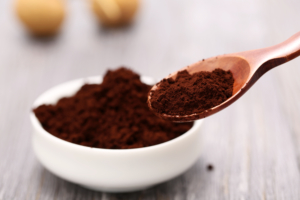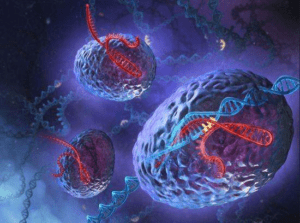Inflammation is a physiological response to harmful stimuli that are physical, chemical, or biological in nature. A number of inflammatory markers, such as high-sensitivity C-reactive protein (hsCRP), interleukin (IL)-6, IL-1, and tumour necrosis factor (TNF)-α, have been shown to be associated with obesity, metabolic syndrome, and an elevated risk of chronic diseases. Elevated circulating levels of hsCRP and IL-6 predict the development of T2DM through diminishing insulin sensitivity. Obesity-induced inflammation has been implicated as a risk factor in the pathogenesis of T2DM, insulin resistance, CVD, and metabolic syndrome.
There are several in vitro studies showing the anti-inflammatory effect of Ganoderma lucidum extracts. The triterpene extracted from Ganoderma lucidum reduced the secretion of tumour necrosis factor(TNF-α) and interleukin-6(IL-6), and inflammatory mediator nitric oxide (NO) and prostaglandin E(2) (PGE2) from lipopolysaccharide (LPS)-activated murine macrophages via inhibition of nuclear factor-κB (NF-κB) and activator protein 1 (AP-1) signalling.
Ganoderma lucidum sterols downregulated the mRNA expressions of NO, TNF-α, IL-1β, and IL-6, and attenuated LPS-induced cell polarisation by modulating mitogen-activated protein kinase (MAPK) and NF-κB pathways. In addition, Ganoderma lucidum extract reduced the excessive production of NO, PGE2, and pro-inflammatory cytokines, IL-1β, and TNF-α via inhibition of the NF-κB and toll-like receptor signalling pathways in LPS-stimulated BV2 microglial cells.
In an in vivo study, administration of water extract of Ganoderma lucidum (2g/kg, s.c.) 1h prior to applying carrageenan reduced both the first and second phases of carrageenan-induced inflammation. It has been proved that 70% methanol extracts of Ganoderma lucidum (500 and 1000mg/kg) produced anti-inflammatory effects against carrageenan-induced acute and formalin-induced chronic inflammation in mice and the effect was comparable to that of the standard reference drug, diclofenac (10mg/kg).
The anti-inflammatory effect of Ganoderma lucidum supplementation has been studied in several small scale trials. In a clinical trial involving 45ST-elevation myocardial infarction (STEMI) and non-STEMI patients, the polysaccharides of Ganoderma lucidum (750mg/day in 3 divided doses for 90days) decreased the levels of IL-1 and TNF-α, as well as the MDA levels.
involving 45ST-elevation myocardial infarction (STEMI) and non-STEMI patients, the polysaccharides of Ganoderma lucidum (750mg/day in 3 divided doses for 90days) decreased the levels of IL-1 and TNF-α, as well as the MDA levels.
In a recent randomised closed-label clinical trial involving 38 patients with atrial fibrillation, consumption of polysaccharides of Ganoderma lucidum, 3 times a day for 90days, reduced significantly the systolic and diastolic blood pressure, heart rate, LDL-C, IL-1β, IL-6, hsCRP, and TNF-α, compared to placebo-treated patients. These data suggest that Ganoderma lucidum polysaccharide peptides may have beneficial effects against factors involved in the pathogenesis of atherosclerosis and atrial fibrillation.

Leave A Comment